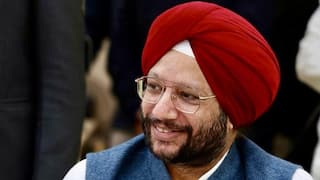Budget 2024 Expectations: Auto Sector Seeking A Push For Green Mobility, Extension Of FAME India Scheme
The auto sector is hoping for the government to encourage green mobility and a faster adoption of electric vehicles along with developing the regulatory framework around it

With the Interim Budget scheduled to be released on February 1, 2024, by Finance Minister Nirmala Sitharaman, the public is keenly looking out for possible policy revisions that can be introduced in the budget.
The auto sector specifically is hoping for the government to encourage green mobility and a faster adoption of electric vehicles along with developing the regulatory framework around it. Experts are anticipating that the budget will provide incentives and support for the Faster Adoption and Manufacturing of (Hybrid &) Electric Vehicles in India (FAME India) scheme and give tax exemptions for the sector.
Elaborating on the recommendations, Dr Anshul Gupta, MD, Okaya Electric Vehicles, said, “The electric vehicle (EV) industry is currently at the forefront of a transformative shift, largely fueled by government incentives and subsidies. To ensure sustained growth and affordability, there is a collective expectation from EV players and analysts regarding the FAME (Faster Adoption and Manufacturing of Hybrid and Electric Vehicles) scheme and EV tax exemption in India.”
Gupta added that the sector hopes that the budget will aim to align the input and output GST rates for EVs and spare parts at 5 per cent, in turn, creating consistency and helping make EVs more accessible and affordable for the majority of the public.
The executive also said that incentives directed to Indian Original Equipment Manufacturers (OEMs) is another crucial aspect, that will help support local manufacturers, boost advancements in EV technology, and strengthen the indigenous EV industry.
“The FAME subsidy has proven instrumental in fostering industry growth. Sustaining and expanding this subsidy for the upcoming year is crucial, as it directly benefits consumers and encourages the widespread adoption of electric vehicles. These government initiatives, if upheld, have the potential to create a positive ripple effect, driving innovation among manufacturers and making EVs a more attractive option for consumers. In essence, a continued commitment to supportive policies can propel India further towards a sustainable and electric mobility future,” Gupta added.
Adding on to the recommendations, Amit Raj Singh, founder and MD, Gemopai, noted that experts are anticipating the government to increase the FAME-II scheme beyond 2024 and provide lucrative interest rates to financial institutions to boost EV funding, in turn, helping enhance the adoption of EVs in the country.
“Industry experts are calling for a more customer-centric approach to the scheme's implementation, with benefits shared directly with end-users rather than original equipment manufacturers (OEMs),” Singh stated.
Elaborating on the issues plaguing the EV industry, Manideep Katepalli, co-founder, Bikewo, noted, “Our industry encounters persistent challenges. Chief among these hurdles is the imperative need for robust charging infrastructure, pivotal in inspiring confidence among potential buyers and propelling the widespread adoption of electric vehicles (EVs) as a sustainable mode of transportation. Another barrier remains the relatively higher initial cost of EVs, often deterring consumers.”
Katepalli said integrating EV infrastructure into Priority Sector Lending (PSL) would help boost credit flow into the sector by mandating financial institutions to provide support and help the industry flourish. He also called for the development of a supportive regulatory framework including financial incentives targeted to help establish research and development as the foundation for the industry.
“These measures not only drive innovation but also attract investments, creating an environment conducive to widespread EV adoption. Ultimately, these strategic initiatives play a pivotal role in establishing an enduringly sustainable and eco-friendly transportation ecosystem,” Katepalli stated.
Santosh Iyer, MD and CEO, Mercedes-Benz India, highlighted that the budget should push for green mobility. “The luxury car industry has a significant value contribution to the GDP and the segment aspires for a rationalised duty structure and GST on priority. Overall, we expect consistency in various policies and no surprises in the upcoming budget,” he said, reported PTI.
Notably, luxury vehicles are charged under the top GST slab of 28 per cent with an additional cess of 20 per cent on sedans and 22 per cent on SUVs, taking the overall tax incidence to up to 50 per cent.
Swapnesh R Maru, MD (Corporate Planning, Finance & Administration and Manufacturing), Toyota Kirloskar Motor, said, “The automaker remains confident that the Government will continue its push towards shifting the economy and transportation sector to a greener future that is less dependent on fossil fuels.”
Also Read : Union Budget 2024 Expectation: Defence Sector Seems Positive On Upcoming Budget
Related Video
Union Budget 2025: Arvind Kejriwal lists the shortcomings of the Modi government's budget | ABP News | AAP





































